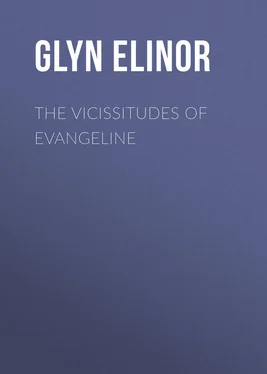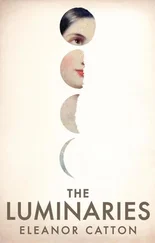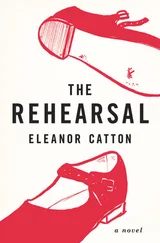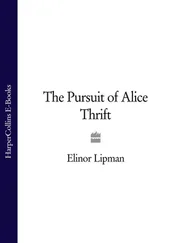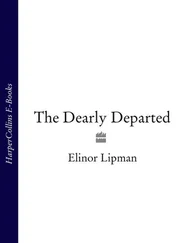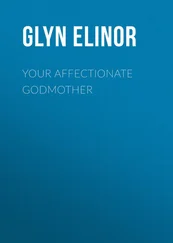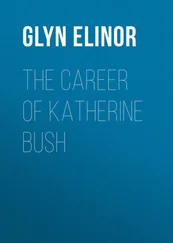Elinor Glyn - The Vicissitudes of Evangeline
Здесь есть возможность читать онлайн «Elinor Glyn - The Vicissitudes of Evangeline» — ознакомительный отрывок электронной книги совершенно бесплатно, а после прочтения отрывка купить полную версию. В некоторых случаях можно слушать аудио, скачать через торрент в формате fb2 и присутствует краткое содержание. Жанр: foreign_antique, foreign_prose, на английском языке. Описание произведения, (предисловие) а так же отзывы посетителей доступны на портале библиотеки ЛибКат.
- Название:The Vicissitudes of Evangeline
- Автор:
- Жанр:
- Год:неизвестен
- ISBN:нет данных
- Рейтинг книги:3 / 5. Голосов: 1
-
Избранное:Добавить в избранное
- Отзывы:
-
Ваша оценка:
- 60
- 1
- 2
- 3
- 4
- 5
The Vicissitudes of Evangeline: краткое содержание, описание и аннотация
Предлагаем к чтению аннотацию, описание, краткое содержание или предисловие (зависит от того, что написал сам автор книги «The Vicissitudes of Evangeline»). Если вы не нашли необходимую информацию о книге — напишите в комментариях, мы постараемся отыскать её.
The Vicissitudes of Evangeline — читать онлайн ознакомительный отрывок
Ниже представлен текст книги, разбитый по страницам. Система сохранения места последней прочитанной страницы, позволяет с удобством читать онлайн бесплатно книгу «The Vicissitudes of Evangeline», без необходимости каждый раз заново искать на чём Вы остановились. Поставьте закладку, и сможете в любой момент перейти на страницу, на которой закончили чтение.
Интервал:
Закладка:
He leant back, and laughed merrily.
“You are candid, at any rate!” he said.
Mr. Barton came into the room at that moment, full of apologies for being late. Immediately after, with the usual ceremony, the butler entered and pompously announced, “Dinner is served, sir.” How quickly they recognize the new master!
Mr. Carruthers gave me his arm, and we walked slowly down the picture gallery to the banqueting hall, and there sat down at the small round table in the middle, that always looks like an island in a lake.
I talked nicely at dinner. I was dignified and grave, and quite frank. Mr. Carruthers was not bored. The chef had outdone himself, hoping to be kept on. I never felt so excited in my life.
I was apparently asleep under a big lamp, after dinner in the library – a book of silly poetry in my lap – when the door opened and he – Mr. Carruthers – came in alone, and walked up the room. I did not open my eyes. He looked for just a minute – how accurate I am! Then he said, “You are very pretty when asleep!”
His voice was not caressing, or complimentary, merely as if the fact had forced this utterance.
I allowed myself to wake without a start.
“Was the ’47 port as good as you hoped?” I asked, sympathetically.
He sat down. I had arranged my chair so that there was none other in its immediate neighbourhood. Thus he was some way off, and could realize my whole silhouette.
“The ’47 port – oh yes! – but I am not going to talk of port. I want you to tell me a lot more about yourself, and your plans.”
“I have no plans – except to see the world.”
He picked up a book, and put it down again; he was not perfectly calm.
“I don’t think I shall let you. I am more than ever convinced you ought to have some one to take care of you; you are not of the type that makes it altogether safe to roam about alone.”
“Oh! as for my type,” I said, languidly, “I know all about that. Mrs. Carruthers said no one with this combination of colour could be good, so I am not going to try. It will be quite simple.”
He rose quickly from his chair, and stood in front of the great log fire, such a comical expression on his face.
“You are the quaintest child I have ever met,” he said.
“I am not a child – and I mean to know everything I can.”
He went over towards the sofa again, and arranged the cushions – great, splendid, fat pillows of old Italian brocade, stiff with gold and silver.
“Come!” he pleaded, “sit here beside me, and let us talk; you are miles away there, and I want to – make you see reason.”
I rose at once, and came slowly to where he pointed. I settled myself deliberately, there was one cushion of purple and silver right under the light, and there I rested my head.
“Now talk!” I said, and half closed my eyes.
Oh! I was enjoying myself! The first time I have ever been alone with a real man! They – the old ambassadors, and politicians, and generals, used always to tell me I should grow into an attractive woman – now I meant to try what I could do.
Mr. Carruthers remained silent – but he sat down beside me, and looked, and looked right into my eyes.
“Now talk then,” I said again.
“Do you know, you are a very disturbing person,” he said at last, by way of a beginning.
“What is that?” I asked.
“It is a woman who confuses one’s thought when one looks at her. I do not now seem to have anything to say – or too much.”
“You called me a child.”
“I should have called you an enigma.”
I assured him I was not the least complex, and that I only wanted everything simple, and to be left in peace, without having to get married, or worry to obey people.
We had a nice talk.
“You won’t leave here on Saturday,” he said, presently, apropos of nothing. “I do not think I shall go myself, to-morrow. I want you to show me all over the gardens, and your favourite haunts.”
“To-morrow I shall be busy packing,” I said, gravely, “and I do not think I want to show you the gardens – there are some corners I rather loved – I believe it will hurt a little to say good-bye.”
Just then Mr. Barton came into the room, fussy and ill at ease. Mr. Carruthers’ face hardened again, and I rose to say good-night.
As he opened the door for me: “Promise you will come down to give me my coffee in the morning,” he said.
“ Qui vivra verra ,” I answered, and sauntered out into the hall. He followed me, and watched as I went up the staircase.
“Good-night!” I called softly, as I got to the top, and laughed a little – I don’t know why.
He bounded up the stairs, three steps at a time, and before I could turn the handle of my door, he stood beside me.
“I do not know what there is about you,” he said, “but you drive me mad – I shall insist upon carrying out my aunt’s wish after all! I shall marry you, and never let you out of my sight – do you hear?”
Oh! such a strange sense of exaltation crept over me – it is with me still! Of course he probably will not mean all that to-morrow, but to have made such a stiff block of stone rush upstairs, and say this much now is perfectly delightful!
I looked at him up from under my eyelashes. “No, you will not marry me,” I said, calmly; “or do anything else I don’t like, and now really good-night!” and I slipped into my room, and closed the door. I could hear he did not stir for some seconds. Then he went off down the stairs again, and I am alone with my thoughts.
My thoughts! I wonder what they mean. What did I do that had this effect upon him? I intended to do something, and I did it, but I am not quite sure what it was. However, that is of no consequence. Sufficient for me to know that my self-respect is restored, and I can now go out and see the world with a clear conscience.
He has asked me to marry him! and I have said I won’t!
Branches Park, Thursday night, Nov. 3rd, 1904.Dear Bob, – A quaint thing has happened to me! Came down here to take over the place, and to say decidedly I would not marry Miss Travers, and I find her with red hair and a skin like milk, and a pair of green eyes that look at you from a forest of black eyelashes with a thousand unsaid challenges. I should not wonder if I commit some folly. One has read of women like this in the cinque-cento time in Italy, but up to now I had never met one. She is not in the room ten minutes before one feels a sense of unrest, and desire for one hardly knows what – principally to touch her, I fancy. Good Lord! what a skin! pure milk and rare roses – and the reddest Cupid’s bow of a mouth! You had better come down at once, (these things are probably in your line) to save me from some sheer idiocy. The situation is exceptional; she and I practically alone in the house, for old Barton does not count. She has nowhere to go, and as far as I can make out has not a friend in the world. I suppose I ought to leave – I will try to on Monday, but come down to-morrow by the 4 train.
Yours, Christopher.P.S. ’47 port A1, and two or three brands of the old aunt’s champagne exceptional, Barton says; we can sample them. Shall send this up by express, you will get it in time for the 4 train.
(The above letter from Mr. Carruthers came into Evangeline’s possession later, and which she put into her journal at this place. – Editor’s note.)
Branches, Friday night, November 4th.This morning Mr. Carruthers had his coffee alone. Mr. Barton and I breakfasted quite early, before 9 o’clock, and just as I was calling the dogs in the hall for a run, with my outdoor things already on, Mr. Carruthers came down the great stairs with a frown on his face.
Читать дальшеИнтервал:
Закладка:
Похожие книги на «The Vicissitudes of Evangeline»
Представляем Вашему вниманию похожие книги на «The Vicissitudes of Evangeline» списком для выбора. Мы отобрали схожую по названию и смыслу литературу в надежде предоставить читателям больше вариантов отыскать новые, интересные, ещё непрочитанные произведения.
Обсуждение, отзывы о книге «The Vicissitudes of Evangeline» и просто собственные мнения читателей. Оставьте ваши комментарии, напишите, что Вы думаете о произведении, его смысле или главных героях. Укажите что конкретно понравилось, а что нет, и почему Вы так считаете.
